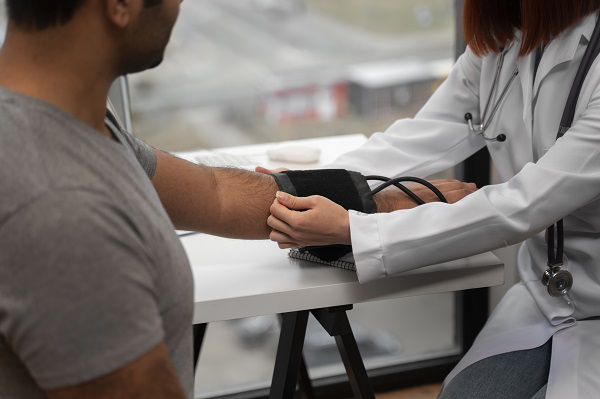
Understand Your Blood Pressure Readings
Monitoring your blood pressure is essential for your health. Understanding your blood pressure numbers can help you control high blood pressure.
Blood Pressure Numbers and Their Meaning
Blood pressure is recorded in two numbers:
-
Diastolic Blood Pressure (The Lower Number)
It indicates the amount of pressure blood is exerting on artery walls while the heart is resting between beats.
-
Systolic Blood Pressure (The Upper Number)
It indicates the amount of pressure blood is exerting on artery walls when the heart beats.
Which Number is More Important?
Basically, systolic blood pressure is more important. It is considered as a major risk factor of cardiovascular health issue for people over 50. Systolic blood pressure rises steadily in most of the people with age due to the increasing stiffness of large arteries, long-term build-up of plaque and an increased incidence of cardiac and vascular disease.
Blood Pressure Ranges
Note: Make sure to diagnose your blood pressure through a medical professional as doctor can also evaluate any unusual low level readings.
According to American Heart Association, blood pressure is diagnosed in 5 different ranges:
1. Normal Blood Pressure
Your blood pressure is normal if your blood pressure numbers are within the normal (optimal) range of less than 120/80 mm Hg. Stick with heart-healthy habits to maintain normal blood pressure.
2. Prehypertension (Early Stage High Blood Pressure)
You’ve high blood pressure if your blood pressure is consistently ranging from 120-139/80-89 mm Hg. People with prehypertension are likely to develop high blood pressure unless they start following a healthy lifestyle. Various changes they need to make are:
- Limit alcohol
- Eat healthy and well balanced diet
- Regular exercise etc.
3. Hypertension Stage 1
When blood pressure consistently ranges from 140-159/90-99 mm Hg, you may’ve hypertension stage 1. Doctors are likely to prescribe lifestyle changes and may consider adding blood pressure medication at this stage.
4. Hypertension Stage 2
If blood pressure consistently ranges at levels greater than 160/100 mm Hg, its hypertension stage 2. Doctors are likely to prescribe a combination of blood pressure medications along with lifestyle changes.
5. Hypertensive Crisis
This is when high blood pressure requires emergency medical attention. If your blood pressure is ranging higher than 180/110 mm Hg and you are not experiencing symptoms such as shortness of breath, chest pain, back pain, weakness, changes in vision or difficulty speaking, consult your doctor immediately.



